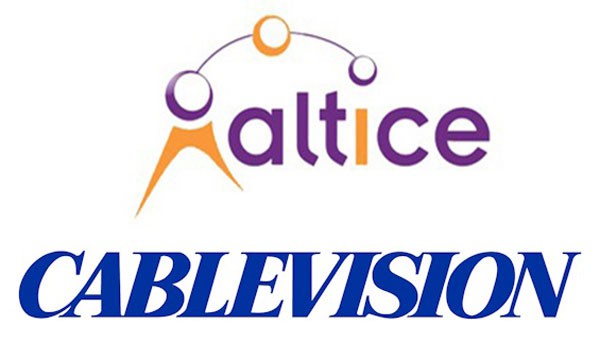 Despite vociferous denials to New York regulators that Altice’s unique way of cost-cutting expenses in Europe would mean the same in the United States, a Suddenlink employee in the Appalachians found herself visiting a nearby Kroger supermarket recently to pick up some “forever” postage stamps after the office’s postage meter machine stopped working.
Despite vociferous denials to New York regulators that Altice’s unique way of cost-cutting expenses in Europe would mean the same in the United States, a Suddenlink employee in the Appalachians found herself visiting a nearby Kroger supermarket recently to pick up some “forever” postage stamps after the office’s postage meter machine stopped working.
“Nobody paid the bill, leaving us to raid petty cash to get some mail out,” the Suddenlink employee told Stop the Cap! “They got the problem resolved later that week, but this was only the most recent of several incidents that make it clear our new owner doesn’t like us spending any money.”
Suddenlink employees in West Virginia needed money to get a broken ice machine in their office fixed and got the third degree instead of a quick answer.
The Wall Street Journal reports during a March “investment committee” meeting, Altice’s bean counters pelted employees with questions about the nature of the ice machine business in the United States and whether it would be smarter to buy or lease.
“A complete waste of people’s time and energy,” said the former Suddenlink employee.
In North Carolina, call center employees are updating their resumes after watching job positions slowly get eliminated starting this past April.
“Since that time, rumors have been spreading that the call center [itself] may be closing soon,” shared another employee. “And if you’re paying attention the writing is on the wall that the rumors are true. But no one from upper management or corporate will share any information.”
 When Altice took over Cablevision, employees were stunned when top executives dined in the staff canteen on their first day after the deal closed. That was never the style of former CEO James Dolan and other executives who avoided hobnobbing with anyone too far from the executive suites. Dolan himself often used a helicopter to travel back and forth from the office, occasionally with bodyguards.
When Altice took over Cablevision, employees were stunned when top executives dined in the staff canteen on their first day after the deal closed. That was never the style of former CEO James Dolan and other executives who avoided hobnobbing with anyone too far from the executive suites. Dolan himself often used a helicopter to travel back and forth from the office, occasionally with bodyguards.
Charles Stewart, chief financial officer of Altice U.S., warns everyone better get used to it.
“[Cost discipline is] our whole philosophy,” Stewart said. “It triggers a discussion at a very nitty-gritty level, which is where the difference is made.”
 With a commitment to slash $900 million in expenses out of Cablevision alone during 2016, that’s a lot of discipline. Employees are echoing their French counterparts at Altice’s SFR-Numericable when they call life at Suddenlink and Cablevision “a culture of fear,” watching workers exiting each week without being replaced. Much the same happened in Europe, despite commitments not to engage in job-cutting. In both cases, Altice claims the slow but steady trickle of employee departures are “normal churn,” not layoffs.
With a commitment to slash $900 million in expenses out of Cablevision alone during 2016, that’s a lot of discipline. Employees are echoing their French counterparts at Altice’s SFR-Numericable when they call life at Suddenlink and Cablevision “a culture of fear,” watching workers exiting each week without being replaced. Much the same happened in Europe, despite commitments not to engage in job-cutting. In both cases, Altice claims the slow but steady trickle of employee departures are “normal churn,” not layoffs.
Altice designed its “investment committee” to be an authoritarian hellhole on purpose. Those who dare to attend the weekly meetings, which extend for hours, face micro-scrutiny of every expense brought before it, with employees peppered with questions to justify their expenses. The same occurred in France, where Altice officials debated how often they should pay to vacuum the carpets and clean the restrooms.
Employees figure out soon enough it is easier not to ask (or to simply buy what you need on your own), before enduring a prolonged debate on mundane topics like using new or recycled toner cartridges.
“It creates consternation for about two months,” admitted Altice USA CEO Dexter Goei. “Then people realize, ‘Boy, I really don’t want to go to the investment committee. We just got 500 printers a year ago; we can probably extend their life one more year.’”
While Altice has a deal with regulators not to layoff “customer-facing” Cablevision employees in New York, it is already slashing one of Dolan’s pet projects: Freewheel, a Wi-Fi powered wireless phone, SMS, and data service.
Coming next: Channel Renewal Battles. Altice executives believe it’s time to declare total war on channel carriage costs, even it leads to prolonged channel blackouts.
“We have about half of our programming lineup that’s up for renewal very soon,” Goei said. “There are clearly a lot of channels that we’d like to get rid of.” But Goei also told the Wall Street Journal many of the networks he doesn’t want are part of broader programming deals that require all of a company’s channels to be carried.
So what is next? Altice has stated emphatically it wants to be either the largest or second largest cable operator in the U.S. That guarantees more acquisitions, probably beginning next year. Cox and Mediacom — both privately held — may decide not to sell, which means Altice will have to refocus on taking over Charter Communications, which itself just absorbed Time Warner Cable and Bright House Networks, or divert to making acquisitions in wireless — T-Mobile or Sprint, perhaps, or content, which likely means one or more Hollywood studios.
 At least 81 Suddenlink employees are suddenly seeking new employment after parent company Altice USA disclosed their intention to lay the workers off as early as next month.
At least 81 Suddenlink employees are suddenly seeking new employment after parent company Altice USA disclosed their intention to lay the workers off as early as next month.

 Subscribe
Subscribe Altice’s ongoing efforts to cut expenses and boost profits at Suddenlink will cost an unspecified number of call center workers their jobs in three states and customers will soon pay a fee to receive their cable bill in the mail.
Altice’s ongoing efforts to cut expenses and boost profits at Suddenlink will cost an unspecified number of call center workers their jobs in three states and customers will soon pay a fee to receive their cable bill in the mail.

 Time Warner Cable subscribers in Otsego County, N.Y. have been able to watch WBNG-TV, the CBS affiliate in Binghamton, since there has been a cable company called Time Warner Cable. But as of yesterday, that is no longer the case. In Baxter County, Ark., Suddenlink customers suddenly lost KARK (NBC) and KTHV (CBS), two stations from Little Rock, after the cable company decided it would henceforth only carry KYTV (NBC) and KOLR (CBS) instead. Part of the problem for subscribers is those two stations are located in Springfield, Missouri, a different state.
Time Warner Cable subscribers in Otsego County, N.Y. have been able to watch WBNG-TV, the CBS affiliate in Binghamton, since there has been a cable company called Time Warner Cable. But as of yesterday, that is no longer the case. In Baxter County, Ark., Suddenlink customers suddenly lost KARK (NBC) and KTHV (CBS), two stations from Little Rock, after the cable company decided it would henceforth only carry KYTV (NBC) and KOLR (CBS) instead. Part of the problem for subscribers is those two stations are located in Springfield, Missouri, a different state.
 Another cable company with cost-cutting fever is Altice-owned Suddenlink, which stopped carrying the two Little Rock-based broadcast stations in northern Arkansas on June 7, leaving KATV (ABC) as the only central Arkansas-based news outlet on the cable provider’s Mountain Home-area system.
Another cable company with cost-cutting fever is Altice-owned Suddenlink, which stopped carrying the two Little Rock-based broadcast stations in northern Arkansas on June 7, leaving KATV (ABC) as the only central Arkansas-based news outlet on the cable provider’s Mountain Home-area system. Suddenlink has standing orders from Altice to look for savings wherever possible, but none of those savings are returned to subscribers. The loss of the stations has not reduced anyone’s cable bill and Suddenlink recently moved TBS and INSP — a Christian cable network — to a more costly Expanded Basic tier. In place of the two networks dropped from the Basic package are home shopping networks that actually make Suddenlink money – Evine Live and Jewelry TV.
Suddenlink has standing orders from Altice to look for savings wherever possible, but none of those savings are returned to subscribers. The loss of the stations has not reduced anyone’s cable bill and Suddenlink recently moved TBS and INSP — a Christian cable network — to a more costly Expanded Basic tier. In place of the two networks dropped from the Basic package are home shopping networks that actually make Suddenlink money – Evine Live and Jewelry TV. Despite vociferous denials to New York regulators that Altice’s unique way of cost-cutting expenses in Europe would mean the same in the United States, a Suddenlink employee in the Appalachians found herself visiting a nearby Kroger supermarket recently to pick up some “forever” postage stamps after the office’s postage meter machine stopped working.
Despite vociferous denials to New York regulators that Altice’s unique way of cost-cutting expenses in Europe would mean the same in the United States, a Suddenlink employee in the Appalachians found herself visiting a nearby Kroger supermarket recently to pick up some “forever” postage stamps after the office’s postage meter machine stopped working. With a commitment to slash $900 million in expenses out of Cablevision alone during 2016, that’s a lot of discipline. Employees are echoing their French counterparts at Altice’s SFR-Numericable when they call life at Suddenlink and Cablevision “a culture of fear,” watching workers exiting each week without being replaced. Much the same happened in Europe, despite commitments not to engage in job-cutting. In both cases, Altice claims the slow but steady trickle of employee departures are “normal churn,” not layoffs.
With a commitment to slash $900 million in expenses out of Cablevision alone during 2016, that’s a lot of discipline. Employees are echoing their French counterparts at Altice’s SFR-Numericable when they call life at Suddenlink and Cablevision “a culture of fear,” watching workers exiting each week without being replaced. Much the same happened in Europe, despite commitments not to engage in job-cutting. In both cases, Altice claims the slow but steady trickle of employee departures are “normal churn,” not layoffs.